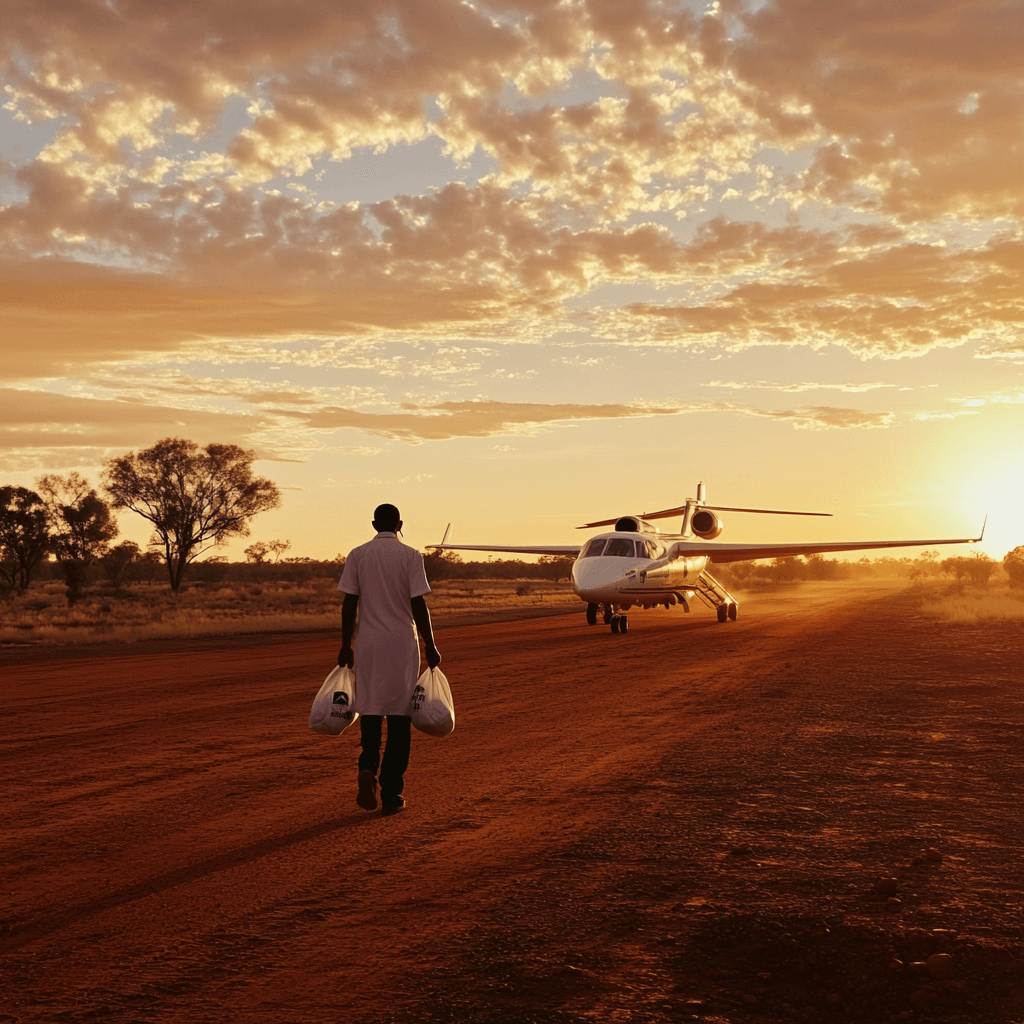March 11, 2025

The Royal Flying Doctor Service (RFDS) plays a crucial role in delivering medical care to Australia's remote and rural regions. Established in 1928, the RFDS provides emergency and primary health services to communities that lack immediate access to hospitals or general practitioners. Utilizing a fleet of aircraft equipped with medical facilities, the RFDS ensures that residents in the Outback receive timely medical attention, often bridging the gap between isolated locations and essential healthcare services.
Healthcare professionals in the Outback often face demanding work conditions, including extended hours and limited resources. Dr. Simon Quilty, who served in Katherine and Alice Springs, filed a lawsuit against the Northern Territory Government, claiming over 15,000 hours of unpaid overtime. This legal action highlights the systemic challenges and personal sacrifices made by medical practitioners in remote areas, underscoring the need for equitable compensation and support for those dedicated to serving these communities.
Despite the challenges, many healthcare professionals find working in the Outback to be a rewarding experience. Staff members of the RFDS have expressed deep satisfaction with their roles, emphasizing the unique opportunities to make a significant impact in remote communities. The ability to provide essential medical services where they are most needed fosters a strong sense of purpose and fulfillment among these professionals.
The scarcity of healthcare providers in rural Australia has led to innovative solutions to ensure medical coverage. The RFDS has been instrumental in mitigating doctor shortages by offering mobile medical services, effectively bringing healthcare to the doorsteps of those in need. This approach not only addresses immediate medical concerns but also contributes to the overall well-being of remote populations by providing consistent and reliable care.
The legal actions taken by practitioners like Dr. Quilty shed light on the systemic issues within the healthcare system in remote areas. Advocating for fair compensation and reasonable working hours is essential to attract and retain skilled professionals in the Outback. Addressing these challenges requires collaboration between government bodies, healthcare organizations, and the communities they serve to create sustainable and supportive working environments.
Healthcare professionals in the Outback often become integral members of the communities they serve. Their presence builds trust and fosters strong relationships, which are vital for effective healthcare delivery. By understanding the unique cultural and social dynamics of these communities, medical practitioners can provide more personalized and effective care, leading to improved health outcomes and community resilience.
To ensure the continued provision of quality healthcare in remote Australia, it is crucial to encourage more professionals to consider careers in the Outback. This involves highlighting the unique rewards of such roles, providing adequate support and resources, and addressing systemic challenges that may deter potential candidates. By doing so, the healthcare system can build a robust workforce dedicated to serving all Australians, regardless of their location.
Join our weekly digest and be the first one to know about new articles.